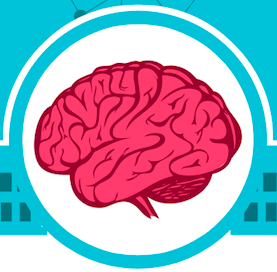Sleep therapy — sometimes called sleep counseling or sleep psychology — is a type of therapy that focuses explicitly on diagnosing and treating unhealthy sleep quality and patterns. It uses a variety of effective therapeutic techniques to help you get better sleep by improving sleep hygiene to manage conditions like insomnia, sleep apnea, narcolepsy, and other sleep conditions.
Sleep therapy uses cognitive behavioral therapy and relaxation exercises as a way of improving sleep habits, and some people benefit from the use of medication as part of a comprehensive treatment plan.
Continue reading to learn more about the fundamentals of therapy for sleep problems, including what types of therapy work best, the benefits of sleep therapy, and how effective it can be.
The Fundamentals of Sleep Therapy
Sleep therapy is based on the understanding that a good night’s sleep can significantly impact overall physical and mental well-being and health. Over time, sleep therapy has evolved into a combined treatment approach that diagnoses and addresses sleep disorders through various treatments and relaxation techniques.
In the past, therapy for sleep problems focused primarily on well-known sleep-related conditions like insomnia or sleep apnea. However, it’s now used to treat a broader range of issues, including circadian rhythm disorders, restless leg syndrome, parasomnia (abnormal or unusual behaviors, movements, perceptions, or emotions during sleep or sleep-wake transitions), sleep anxiety, and more.
The more research continues, the more we recognize how vital restorative sleep is for optimal functioning and health.
“Sometimes, we will look at different tips and advice about improving our sleep habits and determine it doesn’t apply to us. We may even feel like there’s nothing we can change in order to get better sleep. However, it can be helpful over a few days or a week to see what types of routines we have around our sleep and tailor any changes based on what we’ve actually observed that hinder us from getting the best sleep. We can take responsibility for coming up with individualized tips for ourselves which can be the key to changing a behavior or habit.”
– Talkspace therapist Dr Karmen Smith LCSW DD
Types of Therapy for Sleep Problems
Several types of therapy have been found effective in addressing sleep problems like insomnia, but what sets sleep therapy apart is its individualized approach.
Like any form of therapy, the best therapeutic format will depend on factors like symptoms, causes, and nature of a sleep disturbance, as well as specific needs. Thus, treatment recommendations will vary based on identified underlying causes of sleep disruption, personal preference, and individual needs.
Some of the commonly used types of therapy for sleep include:
CBT-I techniques
Cognitive behavioral therapy for insomnia (CBT-I) is a popular, evidence-based approach that aims to address cognitive and behavioral factors contributing to insomnia. In a structured environment, CBT for insomnia uses the basic premise of cognitive behavioral therapy — helping you first to identify and then change unhealthy or unhelpful thought patterns and behaviors related to your sleep problem.
CBT-I often incorporates techniques like:
- Sleep restriction
- Stimulus control
- Relaxation training
Sleep restriction therapy
Sleep restriction therapy is a process that systematically regularizes and restricts how long you stay in bed in an effort to improve your sleep pattern. Some studies have offered a promising outlook.
The therapeutic technique works by identifying and altering unhealthy behaviors that might contribute to poor sleep and insomnia, including:
- How long you stay in bed if you can’t sleep
- How often you nap during the day
- If you have inconsistent sleep-wake times
Stimulus control therapy
Stimulus control therapy is often used in CBT-I to help people create a strong association between bed and sleep. It attempts to break cycles of negative sleep associations by changing bedtime habits and sleep environments, so they’re more conducive to relaxation and quality sleep.
Some of the key principles that stimulus control therapy uses to combat insomnia include:
- Using the bed for sleep and sexual activity only
- Only getting in bed when you’re sleepy, so you don’t lie there awake for a long time
- Getting out of bed if you don’t fall asleep within 20 – 30 minutes of lying down
- Keeping a consistent and healthy sleep schedule by going to bed and waking up at the same time every day — even on weekends
- Avoiding stimulation like TV, electronics, or blue light devices before bedtime
- Minimizing noise, light, and temperature disturbances at bedtime
Relaxation therapy
Relaxation therapy uses several types of relaxation techniques to help calm the body and mind so you can engage in restful sleep. Many are known to promote relaxation and reduce stress, making it easier to fall asleep and stay asleep throughout the night.
Popular relaxation techniques include:
- Progressive muscle relaxation
- Deep breathing exercises for sleep
- Mindfulness meditation
- Guided imagery
Bright light therapy
Although not a proven cure, light therapy — also known as phototherapy — might help treat chronic insomnia or other sleep disorders in some people, according to research.
Light therapy uses exposure to bright light to help regulate circadian rhythm. Typically used in the morning, bright light therapy can also treat other circadian rhythm disorders like delayed sleep phase disorder and shift work sleep disorder.
While more research is warranted, light therapy can potentially help by:
- Regulating circadian rhythm
- Treating seasonal affective disorder that might alter sleep patterns
- Improving your sleep pattern
- Enhancing melatonin production
- Alleviating jet lag
Benefits of Sleep Therapy
Sleep therapy can be beneficial for many people struggling with sleep-related issues. Therapy fundamentally works by identifying and addressing underlying factors impacting your life. In this case, it would mean determining what’s affecting your sleep quality.
A therapeutic approach to improving sleep typically relies on using a variety of techniques and interventions, along with education and support. Potential benefits of sleep therapy include the following.
Improved sleep quality and duration
Sleep therapy can improve sleep quality and duration by encouraging healthy sleep habits and regulating sleep cycles. Focusing on reducing stress and anxiety through therapy can also help you get more restorative sleep, improving alertness and mood during the day.
Reduction in sleep disturbances and insomnia symptoms
Effective sleep therapy can help reduce sleep disturbances and symptoms of insomnia by addressing the root causes. Evidence-based interventions — like cognitive behavioral therapy for insomnia (CBT-I) — help you discover negative thought and behavior patterns related to poor sleep.
Once you realize precisely what’s having a negative impact on your sleep, you can make simple but effective changes.
Improved mental health
Did you know that sleep and mental health are intrinsically linked? Sleep can affect mood regulation, cognitive function, emotional stability, and well-being. Sleep therapy can help you learn to manage stress and reduce symptoms of anxiety and depression, ultimately improving your sleep quality.
Physical health benefits
Insomnia can significantly impact physical health. Sleep difficulties are associated with a higher risk of several health issues. In studies, inadequate sleep was found to have the potential to increase the risk of concerning physical conditions such as:
- Cardiovascular problems
- Higher risk for diabetes
- Metabolic disorders
- Immune dysfunction
- Cognitive impairment
- Reduced quality of life
The Effectiveness of Sleep Therapy
Sleep therapy can improve sleep quality, duration, and mental and physical well-being of people with sleep disorders. Studies consistently highlight efficacy in reducing the severity and frequency of sleep disturbances, especially when using a combined therapy approach that includes exercise or, in some cases, medication.
In short, treating insomnia symptoms with evidence-based sleep therapy can promote healthy sleep habits to enhance daytime functioning, mental clarity, and physical health.
Integrating Sleep Therapy into Your Life
Therapy for sleep problems can be a game changer on your journey toward better mental health. The first step is finding a qualified sleep specialist or mental health provider to help you identify unhealthy sleep patterns so you can get a personalized intervention strategy designed to meet your unique needs.
Cognitive behavioral therapy and a focus on sleep hygiene practices can be incredibly beneficial in helping you get the most consistent, restful, restorative sleep possible. Talkspace makes online cognitive behavioral therapy easy and convenient, with access to experienced therapists who understand how to treat sleep disorders.
You’ll get the dedicated care you seek to overcome any sleep issue at Talkspace. Reach out today to start online treatment for insomnia and to learn if sleep medication might be something you should consider in addition to therapy.
Sources:
- New Oxford study shows brief sleep therapy delivered by nurses improves insomnia. Nuffield Department of Primary Care Health Sciences, University of Oxford. August 11, 2023. Accessed April 19, 2024. https://www.phc.ox.ac.uk/news/new-oxford-study-shows-brief-sleep-therapy-delivered-by-nurses-improves-insomnia.
- Kyle SD, Siriwardena AN, Espie CA, et al. Clinical and cost-effectiveness of nurse-delivered sleep restriction therapy for insomnia in primary care (habit): A pragmatic, superiority, open-label, Randomised Controlled Trial. The Lancet. 2023;402(10406):975-987. doi:10.1016/s0140-6736(23)00683-9. https://www.thelancet.com/journals/lancet/article/PIIS0140-6736(23)00683-9/fulltext. Accessed April 19, 2024.
- Pacheco D, Dimitriu A. Light therapy for insomnia sufferers. Sleep Foundation. November 16, 2023. Accessed April 19, 2024. https://www.sleepfoundation.org/light-therapy.
- Fernandez-Mendoza J, Vgontzas AN. Insomnia and its impact on physical and mental health. Current Psychiatry Reports. 2013;15(12). doi:10.1007/s11920-013-0418-8. https://www.ncbi.nlm.nih.gov/pmc/articles/PMC3972485/. Accessed April 19, 2024.
- Worley SL. The Extraordinary Importance of Sleep: The Detrimental Effects of Inadequate Sleep on Health and Public Safety Drive an Explosion of Sleep Research. P T. 2018;43(12):758-763. https://www.ncbi.nlm.nih.gov/pmc/articles/PMC6281147/. Accessed April 19, 2024.
- Yu DJ, Recchia F, Bernal JD, et al. Effectiveness of exercise, cognitive behavioral therapy, and pharmacotherapy on improving sleep in adults with chronic insomnia: A systematic review and network meta-analysis of randomized controlled trials. Healthcare. 2023;11(15):2207. doi:10.3390/healthcare11152207. https://www.ncbi.nlm.nih.gov/pmc/articles/PMC10418444/. Accessed April 19, 2024.
Talkspace articles are written by experienced mental health-wellness contributors; they are grounded in scientific research and evidence-based practices. Articles are extensively reviewed by our team of clinical experts (therapists and psychiatrists of various specialties) to ensure content is accurate and on par with current industry standards.
Our goal at Talkspace is to provide the most up-to-date, valuable, and objective information on mental health-related topics in order to help readers make informed decisions.
Articles contain trusted third-party sources that are either directly linked to in the text or listed at the bottom to take readers directly to the source.




